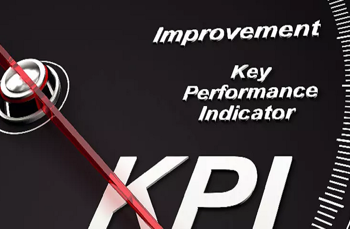How to become a Finance Director
This article discusses the skills required of a Finance Director and the steps you need to take to become one.
Download our free guide for further information on what could be holding you back and what you can do about it.
The Finance Director is the often unsung hero of the boardroom. They are required more than ever in these uncertain economic times to give an outstanding performance and be the backbone of the business.
The Finance Director (FD) can significantly impact a business, and if they seize the opportunity, they can become indispensable to the company and crucial to its success.
In large organisations with a Chief Financial Officer (CFO), the FD will have similar responsibilities to the CFO but will not be part of the senior executive team.
The FD reports to the CFO, and their role is to oversee and direct the financial operations of the company. In many organisations, however, the FD and CFO titles are interchangeable.
The Finance Director's responsibilities include ensuring the company meets financial and legal obligations. They also create and maintain best practice reporting, procedures and policies and support the business with risk and compliance.
They connect the finance team with the CEO or CFO and use their financial insight to help drive strategy and hit targets while also overseeing the finance team.
This article focuses on the skills required of a Finance Director and the key steps to becoming a Finance Director.
Skills required of a Finance Director
The Finance Director is the right-hand person to the CEO and CFO, as well as the board member whose financial, commercial and communication skills must be at the highest level to create a solid foundation for the business to build on.
Right now, as an FD, you can have a major impact – and if you don’t seize the moment, they’ll find somebody else who will.
The primary purpose of the Finance Director role is to contribute to the company’s business goals by:
- Ensuring the company’s financial commitments are met through providing strategic and financial guidance
- Ensuring financial management and control of the company business by implementing necessary policies and procedures
The core responsibilities of a Finance Director will vary depending on the industry, size and structure of the company. However, in general, as defined by the Institute of Directors, the responsibilities will include:
- Direction, control, motivation, and development of the finance team, to ensure that they are skilled and motivated to carry out their responsibilities
- Contributing to the company’s business objectives by providing advice and guidance on financial strategy
- Providing financial advice and guidance to other business units within the company, enabling them to achieve their objectives
- Developing and maintaining all necessary systems, policies and procedures to ensure the company’s effective and efficient financial management
- Overseeing the finance team’s preparation of company financial accounts to ensure that these are presented accurately and on time
- Liaise with third-party and external organisations, such as suppliers, legal advisors, investors and banks, where necessary
- Ensuring that the company meets all financial targets and all financial and legal obligations
To be able to carry out these duties, a Finance Director must have the following core skills:
Strategic thinking skills
Strategic thinking skills are a major advantage to becoming a successful Finance Director. The Finance Director must understand and contribute to the company strategy, understand how the business operates and what its strategy should be, and support the CEO in that strategic journey.
They must also need the strength of character and tools to support their argument for any strategic proposals.
Download our Strategic CFO whitepaper, where we look at some of the critical problems holding CFOs and Finance Directors back and what they can do to become more strategic.
Leadership skills
Leadership skills are a core component required to build and lead a high-performing team, as well as lead the strategic financial direction of a company at the board level.
To help you create your high-performing team, our article on how to build a highly effective finance team discusses the challenges facing the finance team and the key people, processes and technology characteristics required to build a highly effective finance team.
Leadership skills include developing self-mastery, communication and influencing skills, problem-solving and decision-making skills, and demonstrating leadership within the board, finance team and throughout the business.
Interpersonal skills
It is essential that a Finance Director can operate at all levels within an organisation and is visible in their role.
A successful Finance Director must be able to support the CEO or CFO and be seen as a team player and respected by the finance team.
The days of the Finance Director sitting quietly in their office, manipulating spreadsheets, are long gone – they must be able to engage effectively with everyone from colleagues to shareholders and customers to auditors and the HMRC to be successful in their career.
Excellent communication skills
If you want to step up to the role of Finance Director, it is essential to build up your communication skills to a level that matches your financial management ability.
Excellent communication skills will be required to direct and control your finance team to ensure they are motivated and skilled to fulfil their responsibilities to meet the company's strategy.
You will also need exemplary communications skills and high emotional intelligence to deal with the board, the business as a whole, shareholders, and the outside world, such as suppliers and possibly the media.
Emotional intelligence and presentation skills are vital supporters of your communications skills, enabling you to communicate your message to the board and to the business. Whether presenting the latest annual report, discussing share prices or discussing the impact of the economic situation in general, it is vital to give it in a way your audience will understand and appreciate.
Extensive commercial and accountancy experience
Most successful Finance Directors are qualified accountants, although there can be exceptions, and started their careers in a professional firm. They may have taken an MBA to widen their business knowledge from their accountancy qualification.
However, accelerating your skills through grasping new opportunities and gaining extensive commercial and accountancy experience can help your Finance Director career take off quickly.
You can do this by moving into your target industry as soon as possible, taking on challenging projects or roles, and building up experience in different roles, sectors and geographies.
The key is to push yourself out of your comfort zone and into situations that will stretch your capabilities and provide valuable experience.
Steps to becoming a Finance Director
There are six key steps to building a successful career as a Finance Director and developing the required core skills.
1. Build your leadership skills
Build your leadership skills by learning from watching those around you – analyse what impressive people are doing and adopt these behaviours. Seek out mentors and ask leaders in their field questions about their career paths and how they did it.
Many Finance Directors learn by doing. Take on the roles that will stretch you and help you develop your leadership skills on the job.
Use all the resources available to build a highly effective finance team that will support you and help you practice your leadership skills.
2. Enhance your technical skills
A successful FD has a clear sense of what drives profits and cash in the business and a razorlike brain at finding the right number to interrogate amid a screen full of data.
Enhance your technical skills and learn how to access the data to extrapolate the strategic overview.
Many tools are available to do this, from spreadsheets, reporting and query software, data visualization software, data mining tools, online analytical processing (OLAP) tools and business intelligence tools.
These tools enable non-technical individuals to run reports and view dashboards to analyse corporate data, allowing you to access the information you need quickly and easily.
Find out how our Financial software can provide your business with up-to-the-minute processes and connected financial systems to support your growth.
3. Develop your communication and presentation skills
Communication and presentation skills are crucial to the role of the modern FD, so it is vital that you learn and practise these skills daily.
Very often, it is a case of understanding your audience in detail and presenting your message to them in their words. For example, an audience of accountants or your finance team may understand the technical details of the numbers in a spreadsheet supporting a particular strategy. However, you will need to present this in a higher-level, more visual format for non-technical business leaders if you need their support and buy-in.
Many business communication courses are available online and in person.
TED Talks are excellent for observing how others present their messages in a simple and clear format. This article from Harvard Business Review has a great breakdown of How To Give a Killer Presentation.
Our blog on 7 Essential Skills for a CFO and Finance Director discusses more elements of communications skills, such as confidence and relationship building.
4. Grow commercial awareness
Understanding the business is a critical skill for a Finance Director. Therefore, gain as much commercial exposure as early as possible in your career.
The best place to become commercially aware is usually within the business and taking a proactive approach to seeking the necessary experiences to advance your skills.
Look for various commercial experiences by taking on divisional roles, working at headquarters, getting involved in mergers and acquisitions or taking an investor-facing role. Consider working overseas, experiencing adverse conditions and getting close to the end user.
To grow your commercial awareness - learn about your industry inside out and become the CEO’s business partner.
Visit our Strategic CFO hub for more resources to help you succeed in your career and take your business to the next level.
5. Use tools to support your business
A successful Finance Director must have a strategic approach and be on top of the numbers. They need to have the answers available to hand at any time when queried by the board or CEO.
To do this, learn to use Key Performance Indicators (KPIs), Business Intelligence tools and reporting dashboards to your advantage. So that, when required, you can extract the reports you need to support you in your role.
Here are the top 11 KPIs your finance team should be monitoring to get you started.
Financial reporting software can help you track your KPIs to quickly run financial reports when needed. Find out more about how our financial reporting software can help you take control of your financial reporting process.
Read our new blog for more information on how business intelligence can help you become a successful Finance Director.
6. Develop strategic thinking skills
Strategy skills are essential to building your career as a Finance Director. They pull together many of the skills already mentioned, including analytical, communication, problem-solving and planning and management skills.
The best way to develop these skills is through on-the-job experience, observing and reflecting, asking questions, and taking formal training courses.
Our blog on how to become a successful CFO discusses taking a strategic approach in detail.
If you’re going to be strategic, I think that starts with understanding exactly where you are and what the hurdles are and then beginning to make the rest of the organisation aware and guide people through that.
Don't let anything hold you back. Use our guide to succeed as a strategic CFO.
How to succeed as a Strategic CFO
Adopting a strategic approach may seem daunting, pick up some tips on what strategic should look like and how you can take your business to the next level.

New CFO checklist: 90-day plan
Learn more about your first 3 months as a new CFO and where to start with our 90-day checklist.

7 essential skills for a CFO
Have a read through the 7 essential skills for a CFO to make a positive and lasting impact in your organisation.

How to become a successful CFO
Take a look at the common traits shared by successful CFOs and the key elements and skills that will add to CFO effectiveness.

How a CFO can use Business Intelligence
Read how successful CFOs use Business Intelligence to drive company strategy and support finance operations.
Tips to help you lead a finance team
The Strategic CFO needs to deliver strong financial performance, and for this needs a strong finance team to support and align on those goals.

Structuring your finance team: best practices to follow
Understand the considerations and best practices to make when structuring your finance team.

11 KPIs your finance team should monitor
What are KPIs, and why should your finance team track them? Explore the top 11 KPIs your finance team should track and why.

How To Build a Highly Effective Finance Team
Learn how to build a finance team that will support the business’s financial growth, strategy and performance.
How can technology support you as a Strategic CFO
For any organisation to be successful it’s important to be able to identify when it’s time to change your strategy and drive your business forward.

The key signs it's time to change your business strategy
Explore the 3 signs of a poor strategy and how a modern, data-fuelled approach can make a difference.

Key signs it's time to change your accounting system
This webinar discusses the impact of under investment in software, why companies decide to change accounting systems, and how to choose the right supplier

The data-driven future of finance and why CFO's need to embrace it
Take a look at the role and the importance of data to gain a better understanding of the financial health of the business.

Guide to CFO software
Look at the software tools which are of most use to the modern CFO, as well as the latest technology trends to look out for.

 AU & NZ
AU & NZ
 SG
SG
 MY
MY
 US
US
 IE
IE